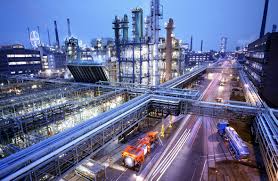A study published in the Journal of Cleaner Production decrees that the pharmaceutical industry is among the most polluting sectors in the world.
Oltre TV – 1 ottobre c2018 – di Maurizio Spezia
The pharmaceutical sector has a very serious environmental impact, much heavier than other industrial giants such as
The study published on journal of Cleaner Production goes into detail on the greenhouse gas emissions that this industry emits into the environment.
There are over two hundred pharmaceutical industries that hold the global market but only 25 have consistently provided data on emissions.
Pharmaceutical industry: pollution for every million earned
Lotfi Belkhir and Ahmed Elmeligi are the two researchers from Canadian McMaster University who conducted the study.
The results are truly incredible. The researchers calculated how many tons of CO2 are emitted by industries for every million earned.
The pharmaceutical industry leads the way with an average of 48.55 tonnes of CO2 since 2015. The figure is staggering when compared to other industries.
Alarming figure given that the market value of the pharmaceutical sector is 28% lower than that
automotive but pollutes the 13% more.
The tons of greenhouse gases emitted were calculated by evaluating both direct and indirect emissions, i.e. generated by purchased electricity.
There is a pharmaceutical multinational that leads the ranking of the most polluting ones in 2015 and it is Bayer with a total of 9.7 million CO2 compared to 51.4 billion dollars in turnover.
The German giant has therefore emitted 189 tons of CO2 for every million earned. Another giant of the pharmaceutical industry, Roche, has issued 14 for every million earned.
The researchers conclude by stating that if large multinational pharmaceutical companies are to meet the goals of the Paris Agreement, they must reduce emissions by 59% by 2025.
